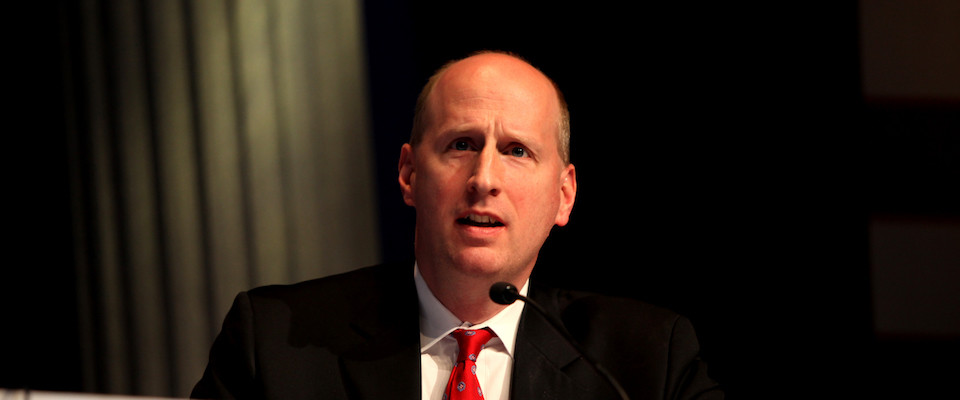By: Sohrab Ahmari – firstthings.com – May 29, 2019
In March, First Things published a manifesto of sorts signed by several mostly youngish, mostly Roman Catholic writers, who argued that “there is no returning to the pre-Trump conservative consensus that collapsed in 2016,” that “any attempt to revive the failed conservative consensus that preceded Trump would be misguided and harmful to the right.”
Against whom, concretely speaking, was this declaration directed?
I don’t claim to speak for the other signatories. But as one of the principal drafters, I have given the question a great deal of thought, both before and since the document’s publication. And I can now say that for me, “Against the Dead Consensus” drew a line of demarcation with what I call David French-ism, after the National Review writer and Never-Trump stalwart.
What is David French-ism? As Irving Kristol said of neoconservatism, French-ism is more a persuasion or a sensibility than a movement with clear tenets. And that sensibility is, in turn, bound up with the persona of one particular writer, though it reaches beyond him to pervade a wider sphere of conservative Christian thinking and activism.
It isn’t easy to critique the persona of someone as nice as French. Then again, it is in part that earnest and insistently polite quality of his that I find unsuitable to the depth of the present crisis facing religious conservatives. Which is why I recently quipped on Twitter that there is no “polite, David French-ian third way around the cultural civil war.” (What prompted my ire was a Facebook ad for a children’s drag queen reading hour at a public library in Sacramento.)
I added, “The only way is through”—that is to say, to fight the culture war with the aim of defeating the enemy and enjoying the spoils in the form of a public square re-ordered to the common good and ultimately the Highest Good.
French prefers a different Christian strategy, and his guileless public mien and strategic preferences bespeak a particular political theology (though he would never use that term), one with which I take issue. Thus, my complaint about his politeness wasn’t a wanton attack; it implicated deeper matters.
Such talk—of politics as war and enmity—is thoroughly alien to French, I think, because he believes that the institutions of a technocratic market society are neutral zones that should, in theory, accommodate both traditional Christianity and the libertine ways and paganized ideology of the other side. Even if the latter—that is, the libertine and the pagan—predominate in elite institutions, French figures, then at least the former, traditional Christians, should be granted spaces in which to practice and preach what they sincerely believe.
Well, it doesn’t work out that way, and it hasn’t been working out that way for a long time—as French well knows, since he has spent a considerable part of his career admirably and passionately advocating for Christians coercively squeezed out of the public square. In that time, he—we—have won discrete victories, but the overall balance of forces has tilted inexorably away from us, and I think that French-ian model bears some of the blame.
To take one of numerous instructive examples, when the progressive clerisy launched an inquisition against the actor Chris Pratt in February over his membership in the wrong kind of church, French appealed to a fictional pluralism. “A core (and very basic) tenet of pluralism,” he wrote,
is the notion that people of diametrically opposed belief systems can live and work side by side so long as they treat each other with dignity and respect. I’ve spent my entire career working with people who believe that my religious beliefs are wrong, that my stance on sexual morality is wrong, and that my political judgments are deeply misguided. Yet even in the case of profound disagreement, it is easy to treat people well. It is easy to treat people fairly.
Conversely, it is the height of intolerance to believe that it is somehow problematic — absent any evidence of mistreatment on the job or on-set — that a person disagrees with you on matters of faith. And if it is an obligation for colleagues to go beyond “welcoming” each other to “affirming” each other’s deepest beliefs, where is the affirmation of faithful Christians?
French is, in effect, telling the cultural revolutionaries: We will grant your autonomy in the neutral institution (in this case, Hollywood). Won’t you grant us ours? Though culturally conservative, French is a political liberal, which means that individual autonomy is his lodestar: He sees “protecting individual liberty” as the main, if not sole, purpose of government. Here is the problem: The movement we are up against prizes autonomy above all, too; indeed, its ultimate aim is to secure for the individual will the widest possible berth to define what is true and good and beautiful, against the authority of tradition.
Only, the libertines take the logic of maximal autonomy—the one French shares—to its logical terminus. They say, in effect: For us to feel fully autonomous, you must positively affirm our sexual choices, our transgression, our power to disfigure our natural bodies and redefine what it means to be human, lest your disapprobation make us feel less than fully autonomous.
They have a point: Individual experiments in living—say, taking your kids to a drag reading hour at the public library—cannot be sustained without some level of moral approval by the community. Autonomy-maximizing liberalism is normative, in its own twisted way. Thus, it represents the interiorization, and fulfillment, of French’s worldview. And this is how David French-ism gets trapped.
To see the remainder of this article and others by Mr. Ahmari, click read more.
Source: Against David French-ism | Sohrab Ahmari | First Things
 Listen Online
Listen Online Watch Online
Watch Online Find a Station in Your Area
Find a Station in Your Area








 Listen Now
Listen Now Watch Online
Watch Online
